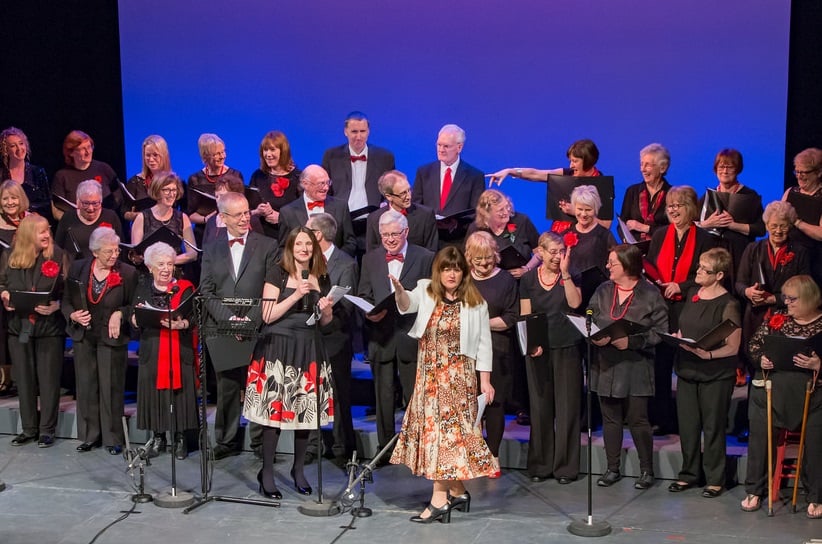
York Community Choir Festival
Photo: michaeljoakes on VisualHunt.com / CC BY-ND
Expansion of social prescribing promised in loneliness strategy
Arts Council England has been instructed to fund arts and health projects and share best practice.
The Government has set out its aim of a establishing a “universal national offer” of social prescribing from GPs within the next five years, in its new strategy on tackling loneliness.
Up to £1.8m has also been set aside to increase the number of community spaces available around the country, by transforming underutilised areas and “creating new art spaces”, and the ministerial portfolio at the Department for Digital, Culture, Media and Sport (DCMS) will now include loneliness.
And Arts Council England (ACE) has been urged to fund more arts and health initiatives and to share best practice.
New initiative
Launching the first ever cross-governmental strategy on loneliness, Prime Minister Theresa May described the condition as “one of the greatest public health challenges of our time”.
Around 200,000 older people have not had a conversation with a friend or a relative in over a month, and between one and five people reportedly visit a GP surgery each day suffering with loneliness – linked to damaging health impacts such as heart disease, strokes and Alzheimer’s disease.
To combat this, the Government promises that by 2023, GPs across England will be able to refer patients to local activities and services via ‘link workers’ who will direct people towards suitable support. “This commitment recognises that people’s social wellbeing and connections are integral to their physical health,” says the strategy.
As part of its ambition “to ensure that social prescribing is a core element of local provision”, the Government will also create a national database of local schemes, publish a best practice guide and launch an online platform to support commissioners and practitioners.
DCMS and ACE
Acknowledging calls for greater recognition of the role of the in arts in reducing loneliness, the strategy sets out a series of recommendations for DCMS and ACE:
- ACE has been directed to work with public health providers to “provide arts and cultural programmes as part of the planned expansion of social prescribing”
- ACE will also work with the Government to identify and promote examples of best practice, raising awareness of the role that arts and culture can play in addressing loneliness
- DCMS will run masterclasses on measuring the impact of library services, to improve understanding of the role libraries can play in preventing individuals from feeling lonely, and continue its ‘Digital Inclusion’ work in such spaces aimed at older and disabled people.
The two bodies will use the Government’s new ‘loneliness measure’, which is still being refined, across relevant projects and programmes.
Strengthen
“Government can’t make our friends for us, and ultimately the challenge of creating a more connected society lies with each of us in our families, neighbourhoods and workplaces,” write Culture Secretary Jeremy Wright and DCMS ministerial lead on loneliness, Tracey Crouch, in the document’s foreword.
“But what government can do is help strengthen the foundations of society so that it becomes more natural and easy to chat, to share and to trust each other.”
May added: “This strategy is only the beginning of delivering a long and far reaching social change in our country – but it is a vital first step in a national mission to end loneliness in our lifetimes.”
Join the Discussion
You must be logged in to post a comment.